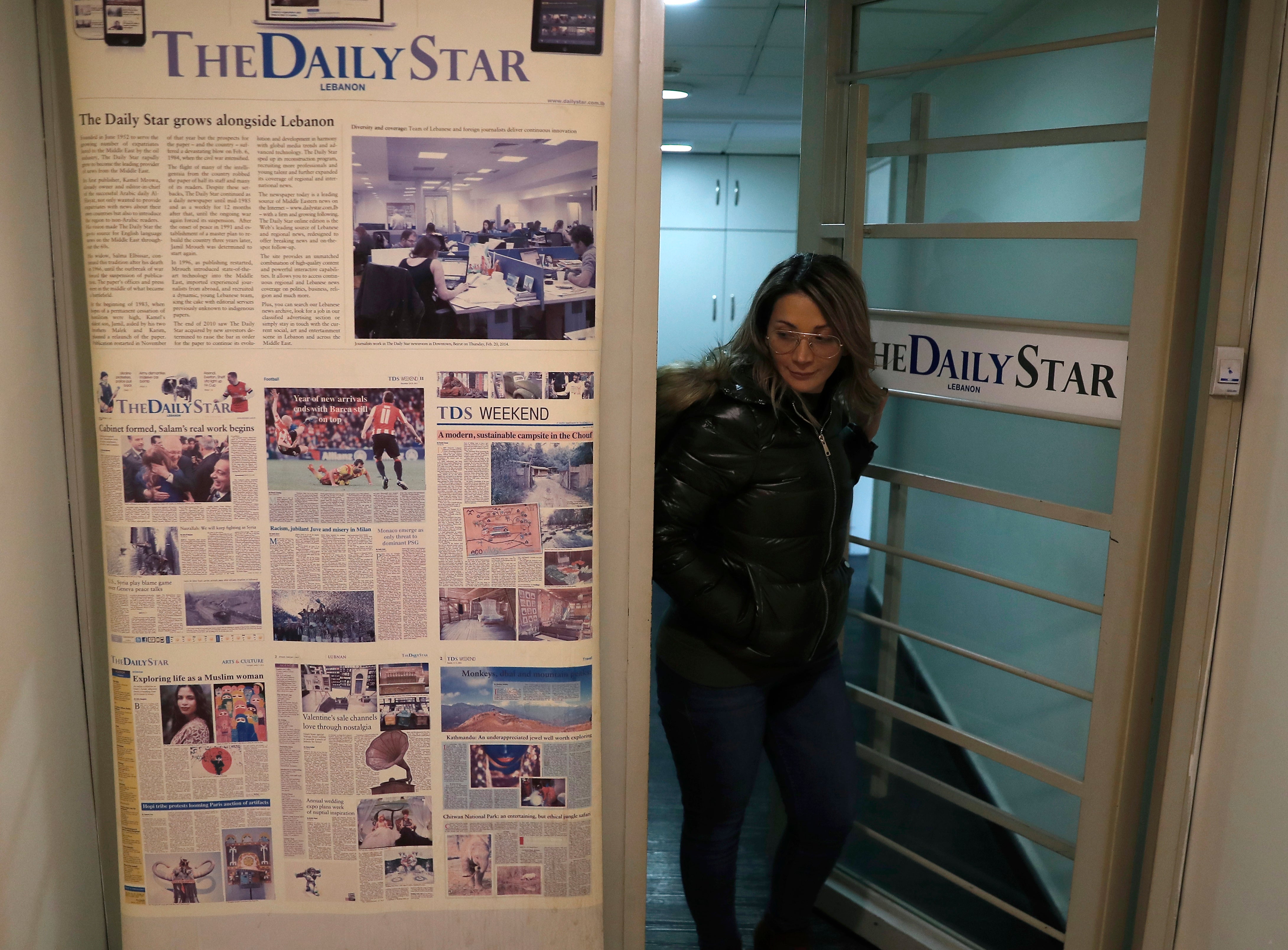Lebanon's oldest English-language daily folds amid crisis
Lebanon’s Daily Star newspaper has folded following a years-long financial struggle

Your support helps us to tell the story
From reproductive rights to climate change to Big Tech, The Independent is on the ground when the story is developing. Whether it's investigating the financials of Elon Musk's pro-Trump PAC or producing our latest documentary, 'The A Word', which shines a light on the American women fighting for reproductive rights, we know how important it is to parse out the facts from the messaging.
At such a critical moment in US history, we need reporters on the ground. Your donation allows us to keep sending journalists to speak to both sides of the story.
The Independent is trusted by Americans across the entire political spectrum. And unlike many other quality news outlets, we choose not to lock Americans out of our reporting and analysis with paywalls. We believe quality journalism should be available to everyone, paid for by those who can afford it.
Your support makes all the difference.Lebanon’s Daily Star one of the leading English-language newspapers in the Arab world and Lebanon’s oldest, has folded following a years-long financial struggle.
An email reviewed Tuesday by The Associated Press informed employees of the decision to lay off all staff as of October 31.
The Daily Star is the latest among several Lebanese newspapers that stopped printing in recent years in a struggle to compete with digital media. Lebanon s severe financial crisis, its worst in 150 years, toughened the challenge.
Many organizations have let go of employees and cut salaries, while others have closed down completely.
Over the years, The Daily Star was a training ground for many Lebanese and foreign journalists who went on to work in prominent media organizations in the region and beyond. News of its closure triggered an outpouring of tributes on social media.
The Daily Star has been struggling with finances for years.
The newspaper was founded in 1952 by Kamel Mrowa, who was at the time also the owner and editor-in-chief of the pan-Arab Al-Hayat newspaper. It was one of the first English-language newspapers in the Arab world, breaking news that included the defection of British intelligence officer Kim Philby to the Soviet Union in 1963.
The newspaper stopped printing during Lebanon’s 1975-90 civil war, before relaunching in 1996.
In 2010, new investors led by former Prime Minister Saad Hariri bought the paper, but the financial struggles continued. Often, staffers went for months without being paid.
The paper suspended its print edition in February 2020, continuing to publish news on its website and social media platforms. The newspaper then stopped updating its website on October 13.
Once a regional pioneer in the media and publishing world, Lebanon has seen media outlets close down successively due to the worsening economic situation.
In 2017, Lebanon’s As-Safir newspaper shut down after 42 years, while another daily, Al-Anwar closed down a year later. The daily Al-Mustaqbal, which was owned by Hariri’s family, ceased its print edition and turned into a digital newspaper. An-Nahar, one of the Arab world’s leading newspapers, has also been forced to lay off staff over the years.